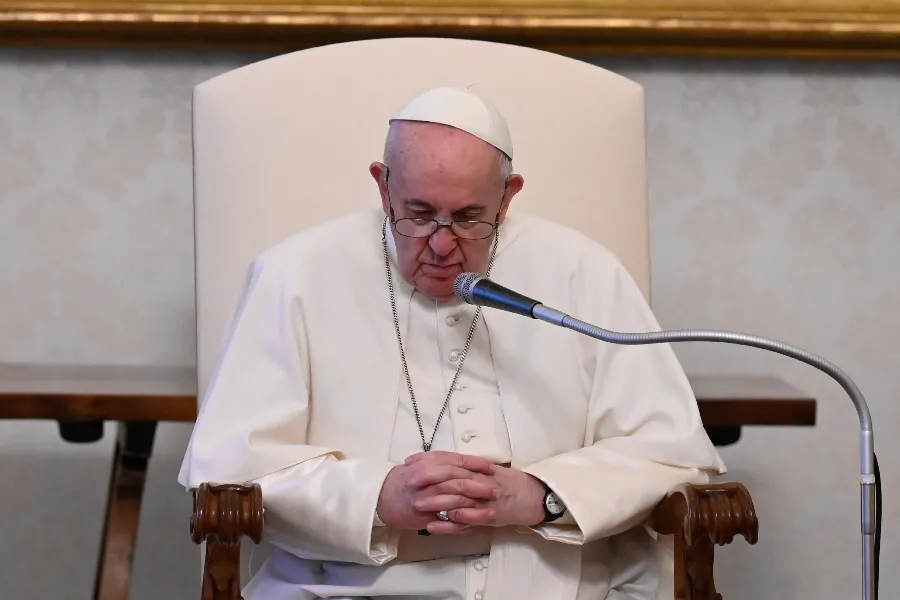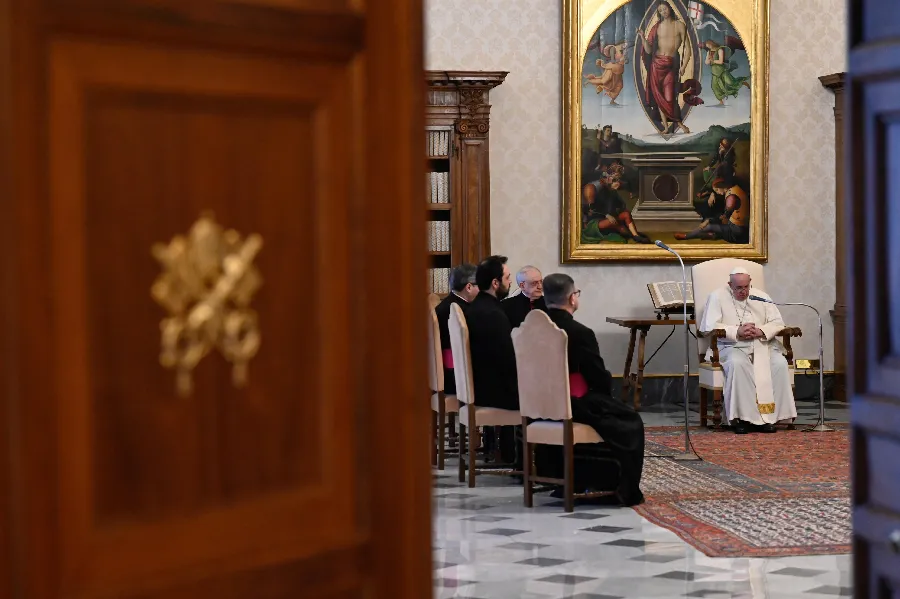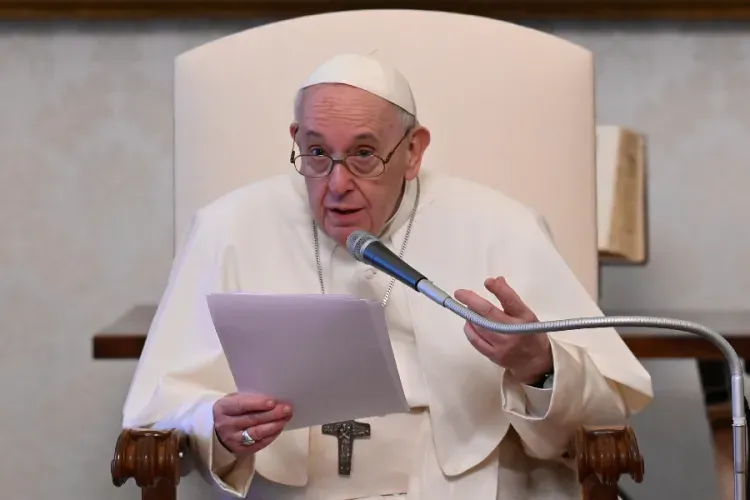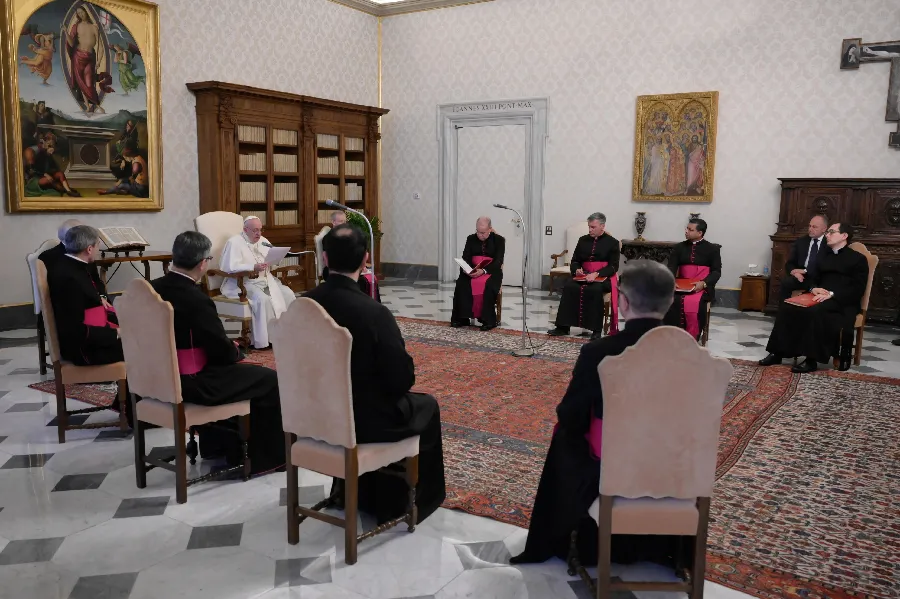He continued: “And the Christian, when he or she prays, does not aspire to full self-transparency, does not seek the deepest center of the ego. This is legitimate, but the Christian seeks something else. The prayer of the Christian is first of all an encounter with the Other, with a capital ‘O’: the transcendent encounter with God.”

“If an experience of prayer gives us inner peace, or self-mastery, or clarity about the path to take, these results are, one might say, consequences of the grace of Christian prayer, which is the encounter with Jesus. That is, meditating means going -- guided by a phrase from the Scripture, from a word -- to the encounter with Jesus within us.”
The pope explained that within the Christian tradition the word “meditation” has been used to refer to many different practices over the past two millennia.
“Nevertheless,” he said, “some common lines can be traced, and in this we are helped again by the Catechism, which says ... ‘There are as many and varied methods of meditation as there are spiritual masters. [...] But a method is only a guide; the important thing is to advance, with the Holy Spirit, along the one way of prayer: Christ Jesus.’”
(Story continues below)
“And here it indicates a traveling companion, one who guides: the Holy Spirit. Christian meditation is not possible without the Holy Spirit. It is he who guides us to the encounter with Jesus. Jesus said to us, ‘I will send you the Holy Spirit. He will teach you and will explain to you. He will teach you and explain to you.’ And in meditation too, he is the guide for going forward in our encounter with Jesus Christ.”
The pope urged Catholics not to become overly attached to any one form of meditative prayer, saying that “the method is a road, not a goal.”
“The methods of meditation are paths to travel to arrive at the encounter with Jesus, but if you stop on the road, and just look at the path, you will never find Jesus,” he said.
“You will make a ‘god’ out of the path. The ‘god’ is not waiting for you there, it is Jesus who awaits you. And the path is there to take you to Jesus.”
He highlighted the practice of meditating on scenes from the Gospel, which was recommended by St. Ignatius of Loyola, the founder of the Jesuit order to which the pope belongs.

He said: “Here, then, the grace of Christian prayer is: Christ is not far away, but is always in a relationship with us. There is no aspect of his divine-human person that cannot become a place of salvation and happiness for us. Every moment of Jesus’ earthly life, through the grace of prayer, can become immediate to us, thanks to the Holy Spirit, the guide.”
In his greetings to different language groups, the pope noted that Poles celebrate the Solemnity of Mary, Queen of Poland, on May 3.
Addressing Polish speakers, he said: “Since the 17th century, the Polish people have given this title to the Mother of God, placing themselves under her maternal protection and committing themselves to serve faithfully the cause of the Kingdom of her Son.”
“Remembering the vows your fathers took at Jasna Góra [in Częstochowa], also in these difficult times of ours, take up Mary’s ever-present invitation and do whatever Jesus tells you. May his blessing accompany each and every one of you, your families, and the entire Polish nation!”











